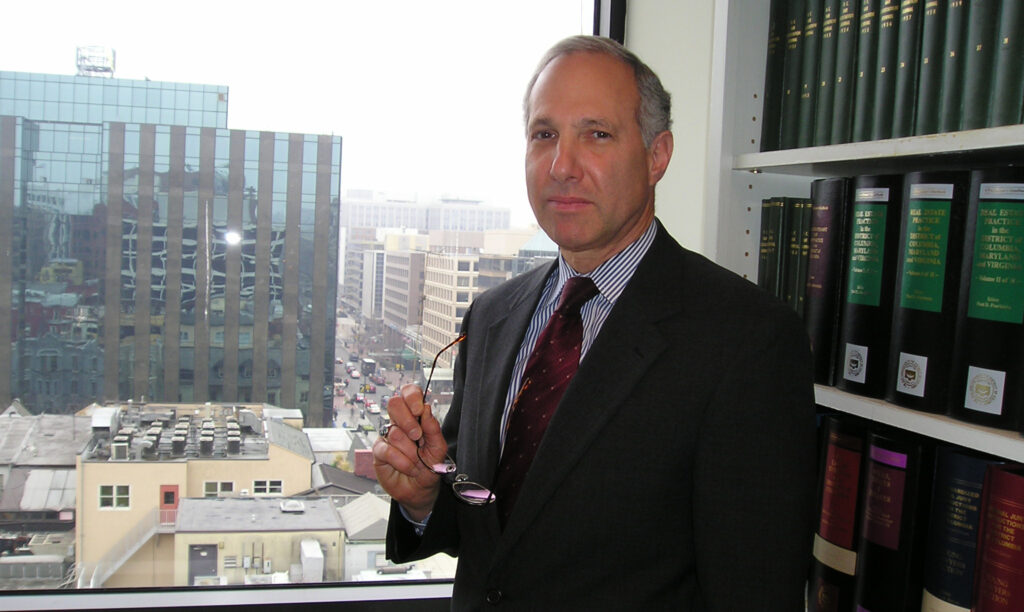Personal Statement

Russell Bikoff grew up on Eastern Long Island, NY, and graduated from both college and law school at the University of Michigan, with a BA (magna cum laude, with high honors) in 1973 and a JD in 1976.
Mr. Bikoff began his professional career in 1976 as an Assistant District Attorney in the Office of the District Attorney of New York County (Manhattan), NY. While assigned to the Office of the Special Narcotics Prosecutor (with city-wide jurisdiction), he prosecuted narcotics conspiracy cases in the Supreme Court of New York, and authored a monograph, “Narcotics Conspiracy Law in New York.” He gained experience in wiretap investigations, the grand jury, and working with undercover police, informants and cooperating witnesses. He later moved to the Appeals Bureau, where he defended many types of state criminal convictions in both the federal and state appeals courts, including arguments at the New York Court of Appeals.
In 1983 Mr. Bikoff entered the U.S. Foreign Service and took up assignments at the U.S. Embassy in Bonn, Germany, and Cape Town, South Africa. In Bonn, he served as deputy and acting press attaché, working with the German media and senior embassy officials on bilateral and multilateral issues, including the placement of nuclear missiles in Germany and elsewhere in Europe during a period of tension in the Cold War. In Cape Town, he served as deputy director of the public affairs section of the U.S. Consulate during a period when apartheid-era South Africa experienced paroxysms of violence and instability, marked by two states of emergency and a serious financial crisis, as the government‘s efforts to oppress the black majority population ran into determined domestic and international resistance.
Returning to the U.S. in 1987, Mr. Bikoff undertook assignments at the U.S. Information Agency (now a part of the U.S. Department of State) in foreign policy initiatives designed to promote the Rule of Law through government-sponsored exchange and information programs with countries around the world. As the USSR collapsed and Germany re-united, he concentrated on the Rule of Law in the newly-liberated and independent countries of Central and Eastern Europe and Eurasia, including Russia. He conducted studies of the legal systems of those countries and selected, prepared, and briefed a cadre of U.S. judges and law professors to travel to those countries to share their expertise. During his diplomatic service, Mr. Bikoff also served as Deputy Staff Director of the Presidentially-appointed Fulbright Foreign Scholarship Board, which oversees the prestigious Fulbright Fellowship Program.
In 1998 Mr. Bikoff joined the Criminal Division of the U.S. Department of Justice as a supervisory trial attorney and deputy director of the Office of International Affairs (OIA). As the deputy director for administration, he managed the resources of an office that handles thousands of international extradition and mutual legal assistance cases with countries the world-over each year. He provided critical assistance as well to the OIA staff based at U.S. Embassies in Rome, Mexico City, London, and Paris.
In 2002 Mr. Bikoff became a principal member of a burgeoning new East Europe team within OIA and assumed responsibility for cases involving the countries of the Balkans (Albania, Bosnia, Bulgaria, Croatia, Macedonia, Moldova, Romania, Serbia), the Caucasus (Armenia, Azerbaijan, Georgia), and Central Asia (Kyrgyzstan, Tajikistan, Turkmenistan, Uzbekistan). He worked on the increasingly complex legal issues emerging from crisis-prone Southeastern Europe (Bosnia, Serbia, Croatia, and Macedonia, Romania and Bulgaria), and developed professional ties with government officials and diplomats from those countries, as well as U.S. officials at the Departments of State and Homeland Security, the staffs of U.S. Attorneys offices, law enforcement agencies, and embassy officers.
In 2005, following 21 years of federal service and seven years working with the N.Y. District Attorney, Mr. Bikoff redirected his efforts to establishing a law practice: A practice designed to offer his years of experience in the public sector, and his enthusiasm for solving problems that cross international borders, to a private clientele that confronts complex legal issues made all the more challenging by differences of geography and distance, language, history, and culture.
As your lawyer and counselor, he will help clients overcome these challenges and guide you to a successful resolution of your legal problems.
Papers
Presentations
Creator and moderator of program “Seeking Justice for Trafficking Victims in the American Courts” for the International Law Section of the D.C. Bar. [March 2008]
Panelists were from the Civil Right Division of the U.S. Department of Justice, the Tahirah Justice Center, and the Jenner & Block law firm.
The panel explored the options for how victims of human trafficking ty to obtain justice. Panelists described how to balance criminal prosecutions, civil lawsuits, and other approaches to find the best option for trafficking victims, and what local attorneys and law firms can do to help.
Consular Corps of Washington, D.C.: Human Trafficking and the Trafficking Victims Protection Act, [February 2008]
Creator and moderator of program “Current Topics in Asylum and Refugee Law” for the International Law Section of the D.C. Bar. [January 2007]
The panelists (from the U.S. Senate, Department of Homeland Security, Human Rights First, and Capital Area Immigrants’ Rights Coalition) discussed material support, alien detention, parole, and developing areas of asylum and refugee law.